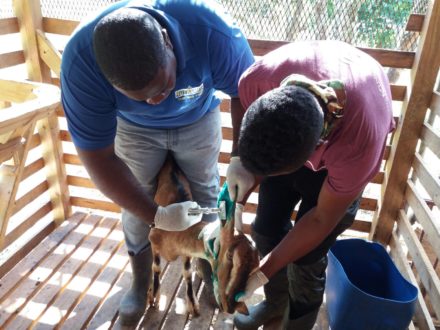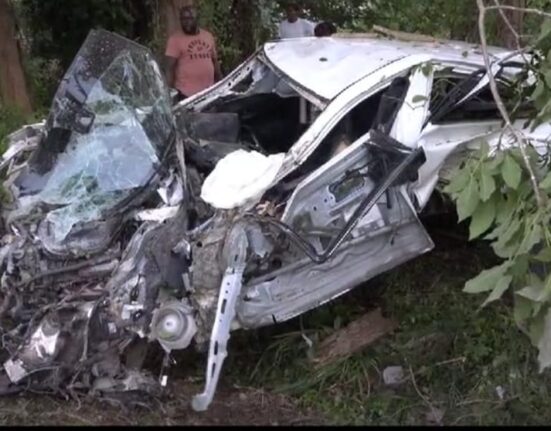

By Janelle Christie
In a rural community called Watsonville, near Moneague, St Ann, several high school dropouts and persons having reached the grade nine level, have been given the opportunity to have a chance at alternative education at the Village Academy School of Agriculture.
Opened in September, 2015, on a section of the Methodist land in the community, the school’s aim is to prepare students between the ages of 16 and 20 to pursue a career in agriculture at HEART level two, and by extension become entrepreneurs or work for agencies that are agriculture based.
There are 20 students on roll and six trained members of staff, two of whom are specialized teachers who teach based on the HEART Trust NTA’s curriculum. The school can however accommodate 80 students per year and is enrolling students for the September, 2017, school year.
Director of the school, Sydney Henry, told the North Coast Times that the school is run by a “multi-sector collaboration” and is sponsored by the Ministry of Education; Ministry of Agriculture; National Land Agency; Sandals, and Digicel foundations; Heart Trust NTA, and the Methodist district. They also work closely with Social Development Commission (SDC), local youth groups, churches and other farming groups such as the Rural Agricultural Development Authority (RADA).
Young people are given the opportunity to obtain a basic level two certification in green house technology, poultry production and other animal rearing, including goats and pigs. They are hoping to go into sheep rearing and apiary culture soon.
In addition to certification in agriculture, students are engaged in personal development training. According to director of operations and student support services, Khadijah Williams, students assist the elderly or challenged persons in the community with chores from time to time.
After completing the one-year course students should be able to contribute to the agriculture value chain in some way, whether as business owners or as farmhands.
With the school now in the second semester of their second year, Ms Williams was able to share the success of some students who have left the programme. She says a number of persons are now gainfully employed because of the level of formal education they were exposed to.
Mr Henry, director of the school, believes the institution should also be able to help the successful students through the development of new collaborations with micro financing for small businesses.
With the training these youths will have after completing the course, Mr Henry hopes that persons can start their own businesses or become self sufficient and limit the rate at which some produce are imported. He went further to make mention of these practices contributing to the country’s economy.
Regarding resources needed to effectively train these youngsters, the institution is almost fully self sufficient except in the area of dairy. It is for this reason they have partnered with Windalco, which is nearby and students are given the opportunity to train using their facilities.
In an attempt to reach out to more youths they are also working with three international foundations and are building another section of the school in Haddon, near Moneague. Mr Henry says they are hoping to start operating at that campus by August.
Boarding is provided at a minimal cost and students are assisted with materials for school. Students from as far as Mandeville, Manchester, Portland and Spanish Town, St Catherine have taken up the opportunity to be a part of the programme. Those unable to afford some basic needs are placed on a student support and entrepreneurship programme, where they are engaged on the weekends. From this they get a certain percentage of the income which they can either take or put towards fees at school.
The laudable goals of the programme not withstanding, persons have stolen a number of items used for teaching and practical purposes. The management of the school is hoping not to have any other setbacks.
Ms Williams urges parents to support their children and to change the perception some of them may have about agriculture being for “old people” and to get them involved at Village Academy School of Agriculture.








